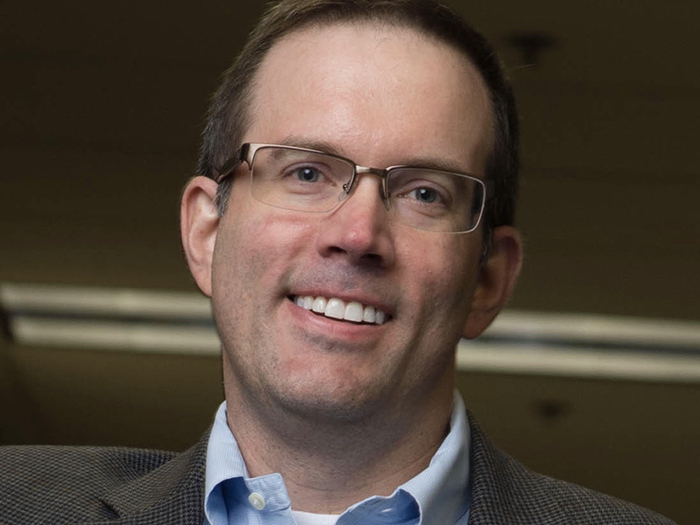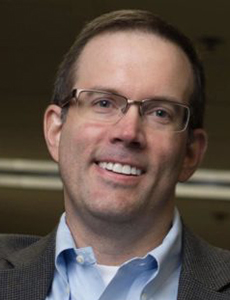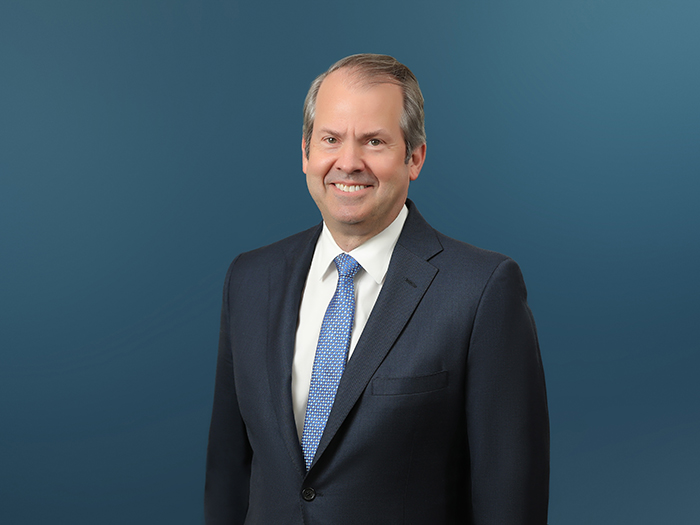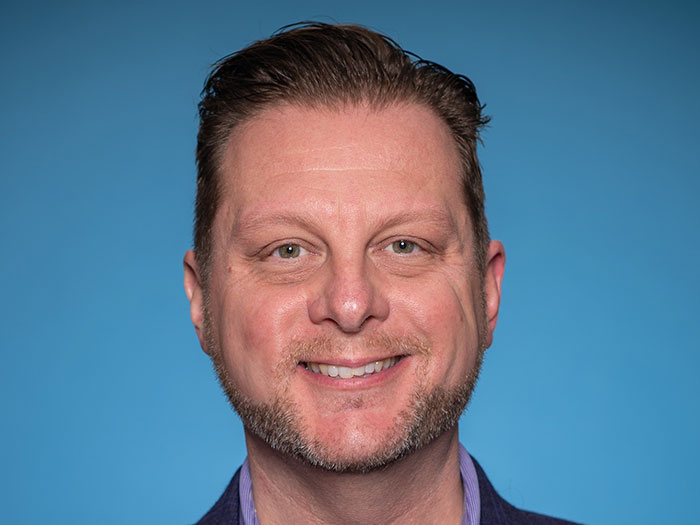One Call CEO Jay Krueger: Everyone Matters to Your Mission

From the Army to health care to workers’ comp, Jay Krueger has been collecting and distilling the elements of leadership, and using them to help shape the organizations he serves, along the way drawing inspiration from the people he serves alongside.
Krueger, appointed CEO of One Call in May 2022, joined the workers’ comp industry in 2008 at PMSI, bringing with him nearly a decade of experience in the health care industry. After serving in leadership roles in Helios and Optum, Krueger accepted a role as independent director on One Call’s board in 2019, then took on an active leadership role as president in 2021.
“When the board asked me to assume the role of CEO, I was delighted to have the opportunity to lead such a dynamic organization with such a noble mission,” he said.
Krueger spoke with Michelle Kerr, R&I’s national workers’ comp editor and conference chair, about his early impressions as CEO, and what direction he sees for One Call and its 2,300 employees.
Michelle Kerr: I had the opportunity to read an article you wrote, so the first thing I learned about you is how passionate you are about One Call’s mission – getting people the care they need when they need it. What does that mission mean to you personally?
Jay Krueger: I tend to gravitate towards three words that are meaningful to me. The first is getting. So getting is a very active term. We have a responsibility to break through obstacles and barriers, [whether they stem from] the industry, the health care market or the complexity of the injured worker’s situation. We have the responsibility to break through all of that to help this person who really needs our help and support.
The next word I tend to focus on is care. So it’s not a product, it’s not a service … it’s an experience of helping someone, as best we can, get back to the life that they knew before they were hurt. No one goes to work wanting to get hurt or expecting to get hurt. And usually through no fault of their own, these individuals’ lives are changed. Sometimes it’s just for a couple days. Sometimes it’s for the rest of their life.
The third word I focus on need. We’re helping and supporting a variety of different needs. Sometimes that’s a need to connect with a provider. Sometimes [it’s a] need for advice and guidance. And sometimes there’s a need for empathy and support for what can be a very emotional time in someone’s life.
Those concepts of being active, being empathetic, and remembering that there’s an individual on the other side of the email, the text message, the phone call — are all things that guide our organization forward.
What we talk about a lot is trying to imagine the other person is a member of your own family and caring for them as you would a family member. Our colleague knows the family, knows the injured worker, sometimes knows their pets, their parents, their caregivers … the level of care and thoughtfulness that our associates show every day is quite frankly so impressive.
MK: What were some of your earliest impressions as you took on your new role?
JK: As I approached this job, one of the most impactful experiences I had was on day two. One of the things I wanted to do was to host new hire orientation. So I made it really interactive and I asked a number of different individuals why they were at One Call.
The one thing that all six people that day talked about — it wasn’t pay, it wasn’t flexible schedules, it was them wanting to be part of an organization that has the impact that we do on people’s lives.
Sometimes that perception was created by a past experience the individual had in health care. Sometimes that perception was created by the process we use to attract the right talent to our organization. And sometimes that perception was shaped by that new hire being referred to us by an associate who lived and breathed that every day.
These six people were literally talking over each other, trying to share just how excited they were to join our organization. For me, that passion is what gets me out of bed every day and has me so excited to be in this role.
MK: Engagement has become an extremely important word across the industry. What are your areas of focus right now in terms of elevating engagement?
JK: For us, there are three main constituent groups that need to function together in a very collaborative way in order to accomplish the mission of taking care of injured workers: providers, clients and our internal staff of 2,300 colleagues.
On the provider side, what’s easy to forget sometimes is there is probably not a segment of our economy that experienced the magnitude of the challenges related to the pandemic. The provider community evolved and changed a fair amount.
First and foremost for us is getting back out in front of providers to illustrate how our solution helps them navigate [workers’ comp]. Workers’ comp, as a part of US healthcare spend, is quite small. So for many providers, the complexity of navigating it is daunting. If we as an organization are focused on getting injured workers care, [we need to be] partnering with providers to take some of the complexity out of the system.
And given their staffing challenges, how do we make the provider experience more efficient? We’ve had great success in expanding our ability to exchange information in an automated way.
We’ve built a set of tools and relationships that we’re rolling out across our physical therapy and diagnostics product lines to offer providers the ability to be more efficient in their practice, which allows us to provide better experiences to our clients.
If you can get an adjuster or case manager [the right information], a compensability decision can be made sooner and care can be initiated faster. It’s good for the providers and ultimately good for our clients.
It’s very interconnected. One of the nice things about our clients is how invested they are in our success. Clients view the work that we do across the spectrum of products as essential to their business. Our clients, even if they phrase it differently, are just as focused on getting injured workers the care they need, when they need it. And we shouldn’t forget this.
I’m humbled at how important clients view our programs to their success, and the level of insight they have about how well things are working, when they’re not working and where the improvement opportunities are. The strong client relationships that we have, and the ability to leverage those to shape the company’s path going forward, is such an opportunity.
MK: I know you’re deeply invested in internal engagement. What does that look like at One Call?
JK: One of our big focus areas is this notion of ‘how do we keep the passion going every single day?’ Like a lot of organizations these days, a fair portion of our staff are new. How do we make them more proficient, [and get them there] faster? That matters for two reasons. When they’re proficient, the better service we’re able to render to our clients. And if someone’s proficient, they feel better about the impact that they’re having and that causes them to want to stay.
Folks come in and they want to be successful. If they don’t feel equipped to do that through the systems they’re utilizing, the training they’re given, they’ll say, well, I’ll go try somewhere else. Probably one of our top five biggest areas of progress in the first half of the year was the work we’ve done in training.
We also want to be an organization where people want to build a career and feel valued and included. We’re trying to differentiate ourselves in the area of diversity, equity, and inclusion. We’re spending a lot of time on that right now and that’s been very well received by our colleagues.
As a company, I think that’s allowed us to attract a pretty diverse set of skills and talents, which ultimately results in us being a more effective organization.
MK: How would you define your goals for advancing One Call’s position in the market going forward?
JK: As with any new CEO, I’m spending the early months thinking about how to evolve the organization strategically. One of One Call’s strengths is our financial position. We have three large and supportive shareholders who are very passionate about what we do as an organization.
One Call has a very unique platform, and there are numerous opportunities to expand what we do to have even greater impact on injured workers’ lives.
The immediate focus for me is ensuring that the injured worker and client experience is what we want it to be. Clients make a decision almost every day about whether to send an injured worker in need to us. When we are successful, that causes them to want to refer the next one to us. When we struggle, it’s very easy for that business to go to someone else.
The financial equation, the analytics you do, and the level of partnership you have with client, that’s all important. But it all comes down to service. Does the client trust us to take care of an injured worker the way they want them to be taken care of? Are we an enabler of their business model causing them to achieve the levels of impact they want in medical outcomes and return to work outcomes?
If we’re not doing that well, nothing else matters all that much. If that service experience is aligned with what we want it to be. If it is, that earns you the right to talk about additional opportunities for collaboration with your clients.
For the long term, I’m thinking about how to leverage the capacity, both intellectual and financial, of our investors, to evolve One Call over the next two to four years. It’s early to talk about exactly what form that will take, but it’s nice to have the options that we do.
It’s exciting to have a growing platform with supportive shareholders in order to contemplate all that. I came into the business at a really good time.
MK: From your experience in both workers’ comp and health care, what does workers’ comp stand to gain from using health care as an example?
JK: There are a few things that you see in health care that you don’t see quite as much in work comp and one of those is analytics. The work comp industry has struggled to use analytics to its fullest extent.
I think the biggest reason for that is the industry is very fragmented. There are many different actors that can touch a single claim. So when you think about someone who has a significant injury, there are companies like ours, there’s pharmacy benefit managers, there’s the client and the claims adjusting staff, case managers, different networks of medical providers, bill review companies, and then all sorts of other intermediaries trying to add value on the way.
That constrains the ability to use data in a holistic way, because it’s hard to get a complete picture of what’s going on with any individual at any given time. We have the very good fortune of having six of those interaction points across our product suite, but there are things we don’t have visibility into. I think [better leveraging] use of technology is something that we’d benefit from.
For us, it’s about how do you create a solution that works for many providers? Because if you’re building a technology solution that’s a one-off, that’s pretty hard when you have a network of 85,000 that you’re trying to touch.
One other area where we have an industry constraint is the ability to direct care to the providers who have the best demonstrated outcomes — in some states you can, in some states you can’t. Network configuration and trying to align incentives around better treating providers is something that I wish we could do more effectively in workers’ comp.
Because of our market position, we have the good fortune of having, in some cases, 10 or 15 years of provider data, so that we can direct care to higher performing providers in the right situations. But there are geographic limitations to how far we can push that, which you don’t run into on the health care side.
MK: You served in the U.S. Army for quite a while — thank you for your service. What did you take away from that time that’s still part of how you lead today?
JK: I’d say there are two big things. First one: Every person on the team has a unique and valuable role. I had a neat job in the army, I was a transportation officer [and] I went into port operations. My first job, I had seven landing craft. Think … World War II boats that come on shore and the ramp goes down. I had seven of those.
I’m 21 years old, responsible for 30 soldiers. Every person on that boat had a very unique role. You had the pilot, who was overall accountable for the vessel. You had the engineer, the deck hand, and all three of those individuals had very unique skills. If any of them didn’t do their job, the boat wasn’t able to function.
I think that applies a lot to One Call. During the new hire orientation I mentioned, we had someone from accounts payable [explaining] what their job to our new hires. And they made the comment that their job wasn’t very important.
I stopped them and said, well, I completely disagree. Your job’s critically important because if we don’t pay our providers in a timely manner, or pay them what they think they should be paid, they may not want to see our injured workers, which is core to our mission. Every job’s important.
Secondly, you need to understand what you’re asking people to do and be willing to do it yourself. I really try to model the type of behavior that I’d like to see. Anything I ask folks, I think about how would I feel about it if someone asked me?
That was a wonderful time in my life, a very formative experience for me.
MK: what are you most looking forward to? You’ve got a lot to do.
JK: I’m really thrilled to get to take this journey with 2,300 people that I’ve come to care very deeply about. One Call has had a number of challenges over time, but we’re in a much better position now and the organization is so resilient. You see such amazing people here who are so caring, so thoughtful, so passionate, so strong, so tough.
I’ve really come to love the company and the people on a very deep and personal level, despite having a relatively short relationship with the organization. For me, the opportunity to lead, inspire, learn from and be supported by these 2300 people is the thing I’m most thrilled about.
On top of that, we have the ability, given our market reach right now, to have demonstrable impact on people’s lives. So we have the honor of interacting with injured workers 2.6 million times a year. That’s 2.6 million opportunities to get it right, to change somebody’s life.
What inspires me is continuing to find ways to do that better. Getting to work in an environment where we can have meaningful improvement on people’s lives and to do it alongside people that I think are some of the most amazing people I’ve ever met. For me, that sounds pretty exciting. &









